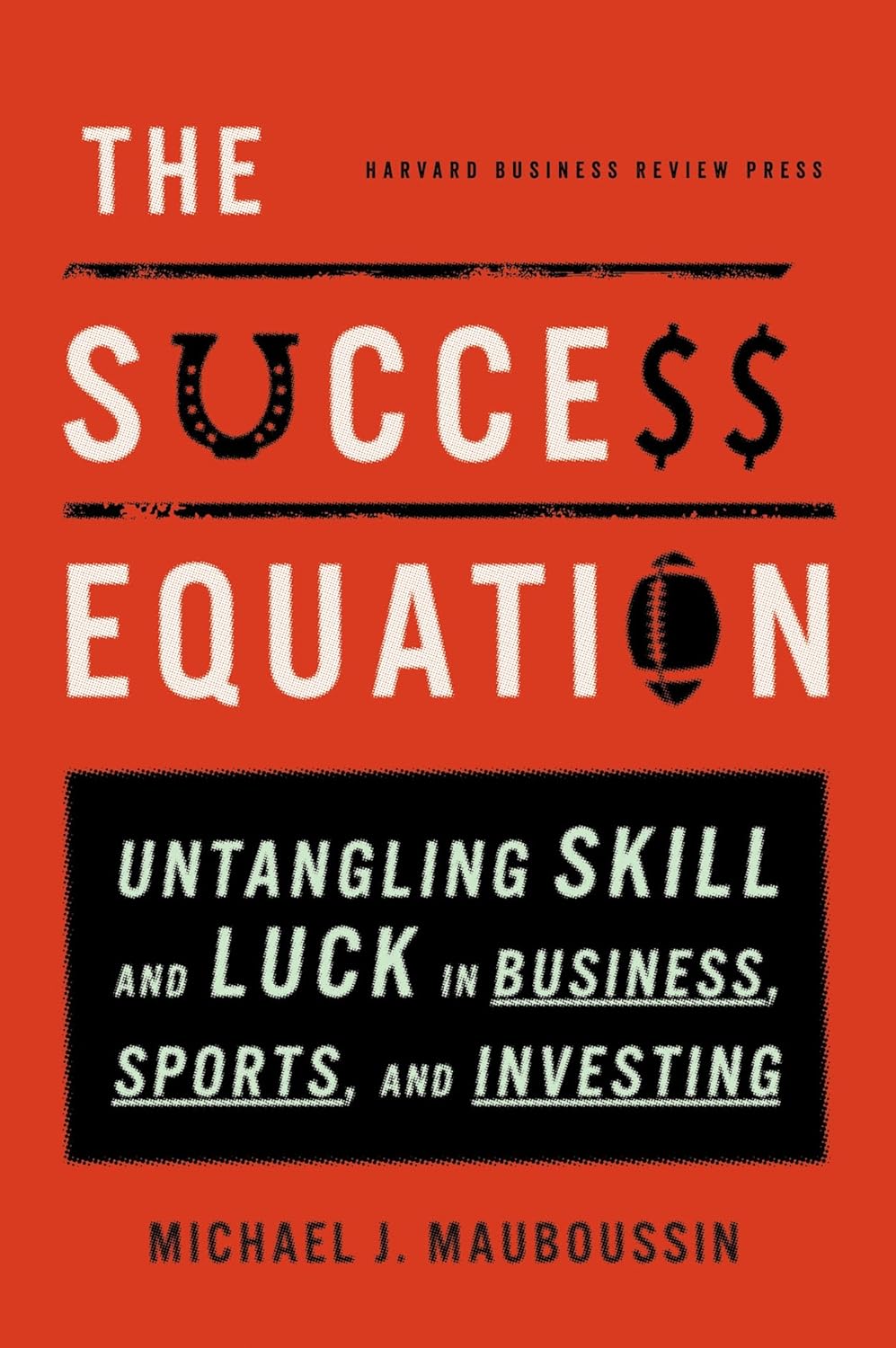Warren Buffett and Michael Mauboussin: RQ is How You Get Rich
I’m reading a book this week about understanding the impact of luck and skill on successful (and unsuccessful) outcomes. It’s called The Success Equation, and it’s by Michael J. Mauboussin. It outlines a framework for assessing the influence of skill and luck on your decisions (many life outcomes are a combination of both) so you can increase the chances of getting a successful outcome. Very interesting book so far.
One section is called “Why Smart People Do Dumb Things.” I’ve been thinking about it a lot today. The key premise of this section is that intelligence tests measure some cognitive abilities but fail to measure others. One area these tests miss is decision-making ability. Smart people sometimes make stupid decisions.
The book goes on to distinguish between intelligence and rationality. Most would think they’re related, but this isn’t necessarily true, the book argues. There are two ways to evaluate someone’s cognitive ability:
- Intelligence quotient (IQ) – This is what traditional intelligence tests measure. It’s a rating of someone’s ability adjusted for their age and compared to the rest of the population. Think mental processing speed, memory, vocabulary, etc.
- Rationality quotient (RQ) – This is the ability to think and behave rationally. RQ attributes include “adaptive behavioral acts, judicious decision making, efficient behavioral regulation, sensible goal prioritization, reflectivity, and the proper calibration of evidence.” This is what interests me most.
The book highlights that many people with high IQs cannot act or think rationally and gives examples.
This section resonated with me for a few reasons. First, if decision-making is what matters most in life, then RQ is most important. IQ can’t be changed (as far as I know), but anyone can learn to act and think rationally through hard work and focus. So, if you didn’t win the ovarian lottery and don’t have a rocket-scientist IQ (I fall into this category), you can still have outsize success if you’re intentional about thinking and acting rationally. It’s not easy and takes work—e.g., I read this book—but I feel it’s definitely something that be learned and improved materially.
Second, this section mirrored something Warren Buffett said (I read it in The Warren Buffett Way last year). I wrote a post on the quote; see here. The gist is that rational behavior is what enabled Warren Buffett to achieve outsize success, not his IQ (which is very high, too). It’s not how smart you are, but how effectively you use the intelligence you have. Buffett says some smart people have a 400-horsepower brain but only get 100-horsepower output from it because of the decisions they make. He argues that by being rational, you can have a 200-horsepower brain and get 200-horsepower of output, which puts you ahead of the 400-horsepower “genius” who can’t act rationally.
When two wise people say the same thing, it catches my attention because they reached the same conclusion independently. The probability that both are wrong is low.
I’m excited to finish reading this book. Understanding IQ and RQ, and recognizing when luck heavily influences what I’m doing, has already changed some of my thinking and decision-making.




